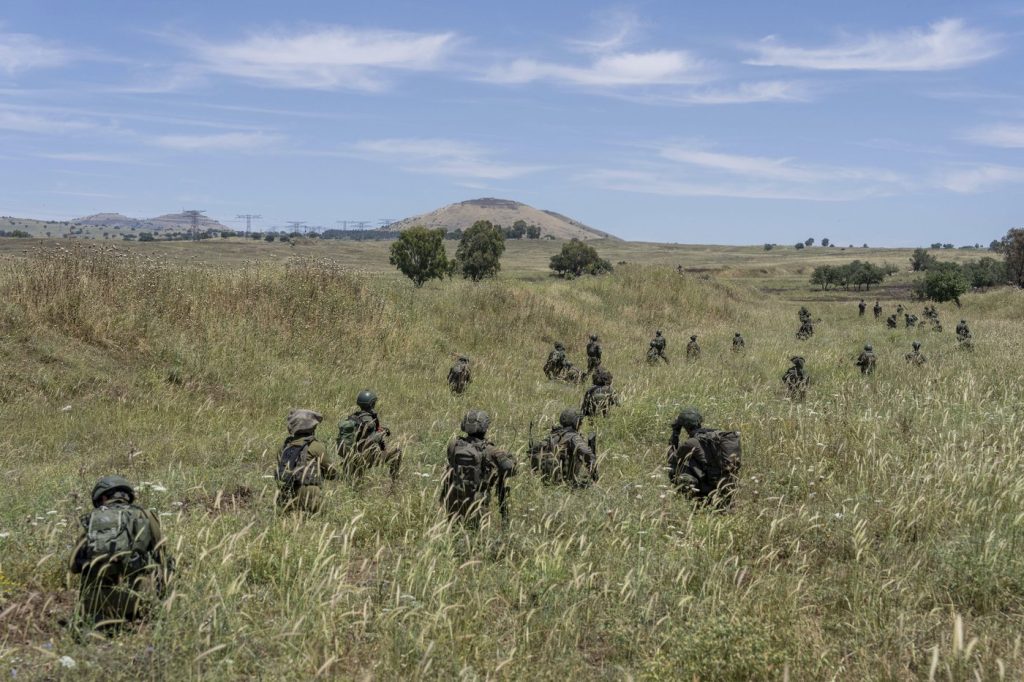TEL AVIV, Israel (AP) - As Israel prepares for an extensive military operation targeting Gaza City, the government has summoned tens of thousands of reservists. However, a noticeable shift has emerged, with an increasing number of soldiers and their mothers publicly refusing to serve, risking imprisonment as a consequence. Although there are no official statistics on these refusals, newly formed groups are vocalizing their dissent, which marks a significant change in the context of the ongoing conflict that began after Hamas' attack on October 7, 2023. Despite this growing opposition, the military operations continue unaffected.
This growing defiance coincides with widespread protests across Israel, where many citizens are accusing Prime Minister Benjamin Netanyahu of prolonging the conflict for political gain rather than seeking a resolution with Hamas to secure the release of hostages. As many as 48 hostages remain, with 20 believed to be alive. Notably, former security officials have voiced concerns that the current military offensive may not yield significant results and could jeopardize the hostages' safety. Additionally, international criticism regarding the humanitarian crisis caused by the war and the blockade of Gaza is mounting.
One notable group advocating for soldiers to refuse service includes mothers who fear for the lives of their sons in a conflict perceived as increasingly futile. Noorit Felsenthal-Berger expressed her anxiety, stating, "I couldn’t stop thinking of how to break his leg, break his arm, wound him in some way that he won’t be able to go back,” reflecting the extreme lengths some mothers are contemplating to protect their children from returning to the battlefield.
Soldiers like Avshalom Zohar Sal, a 28-year-old medic who has served multiple tours in Gaza, describe feelings of exhaustion and confusion regarding their mission. Sal first questioned the purpose of his service last year when he believed he was partially responsible for the deaths of hostages. His doubts grew during later deployments, where returning to previously fought-over areas made him feel vulnerable to attacks. He articulated his distress to the military, stating, “Don’t put me in the position that I need to decide if I’m going to risk again my life.”
A collective named Soldiers for Hostages represents over 360 soldiers who have refused to serve, contrasting starkly with the initial rush of reservists to duty following the October 7 attack. While refusal to serve can lead to imprisonment, the military has only pursued such penalties in select cases. Max Kresch, a member of this group, criticized Netanyahu’s military strategy, stating, “Netanyahu’s ongoing war of aggression needlessly puts our own hostages in danger and has wreaked havoc on the fabric of Israeli society.”
Another organization, Save Our Souls (SOS), claims to represent nearly 1,000 mothers of soldiers, reminiscent of the activism that helped end Israel's occupation of southern Lebanon in 2000. Felsenthal-Berger, whose sons have both served in Gaza, emphasizes their role as advocates for their children’s safety. While some mothers are encouraging their sons to refuse military service, others respect their decisions and focus their messages on Israel's leadership.
The Israeli government's recent call for 60,000 reservists marks the largest mobilization in months. In a country with a population of fewer than 10 million, military service is mandatory for most Jewish men. The government’s decision not to draft ultra-Orthodox men further exacerbates public frustration, which has intensified over multiple years of conflict.
The military maintains that the contributions from reservists are vital for operational success and national security but does not disclose figures on refusal rates. Reports indicate that at least three soldiers tied to Soldiers for Hostages have been imprisoned for their refusal to serve, with terms averaging three weeks.
Support for military action was notably high following the October 7 Hamas attack, which resulted in the deaths of around 1,200 people and the abduction of 251. However, perceptions of the war have shifted over time. After the conclusion of a ceasefire in March 2025, which had allowed for some hostages' release, public sentiment appears to be leaning towards seeking peace. According to a recent poll by the Israel Democracy Institute, about two-thirds of Israelis support a negotiation framework that includes ceasing hostilities and fully withdrawing troops from Gaza as part of a deal to free hostages.
Political analysts suggest that the ongoing conflict, compounded by significant social divisions, could have long-term repercussions on Israel's military effectiveness. Mairav Zonszein, an analyst with the International Crisis Group, noted that military service is fundamentally revered in Israel, stating, “The military, and serving in it, is still sacrosanct.”











